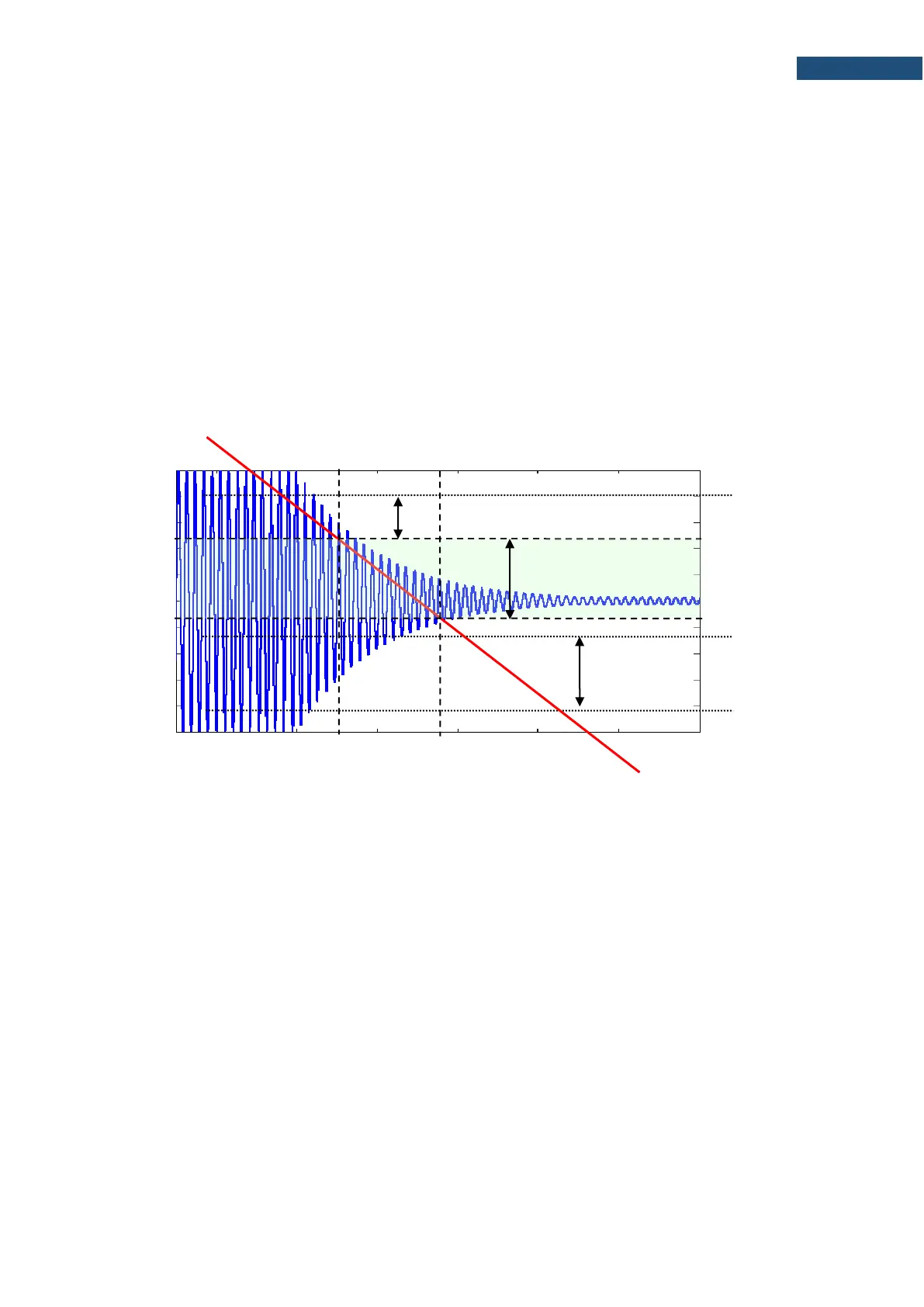SV 977D User Manual - Appendixes
➢ RT 20 (reverberation time calculated with 20 dB dynamics):
The RT 20 decay curve region is pointed out by markers t
1
and t
4
(cf. Fig. 3). It is checked whether the
selected decay curve region has proper dynamics for the RT 20 calculation:
L
1
– L
4
> 5 dB + 20 dB + noise margin
It is recommended by the ISO-3382 standard to set 10 dB value for noise margin.
In case of the impulse method, the sound pressure level values between points t
2
and t
3
are approximated
with the straight line (y = a · x + b) by the linear regression. The RT 20 value is calculated using the slope
coefficient ‘a’ according to the formula:
RT 20 = – 60.0 / a
In case of the decay method, the RT 20 value is calculated according to the formula:
RT 20 = 3 · (t
3
– t
2
)
Fig 3. The RT 20 evaluation
➢ RT 30 (reverberation time calculated with 30 dB dynamics):
The RT 30 decay curve region is pointed out by markers t
1
and t
4
(cf. Fig. 4). It is checked whether the
selected decay curve region has proper dynamics to the RT 30 calculation:
L
1
– L
4
> 5 + 30 dB + noise margin
It is recommended by the ISO-3382 standard to set 10 dB value for noise margin.
In case of the impulse method, the sound pressure level values between points t
2
and t
3
are approximated
with the straight line (y = a · x + b) by the linear regression. The RT 30 value is calculated using the slope
coefficient ‘a’ according to the formula:
RT 30 = – 60.0 / a
In case of the decay method, the RT 30 value is calculated according the formula
RT 30 = 2· (t
3
– t
2
)
